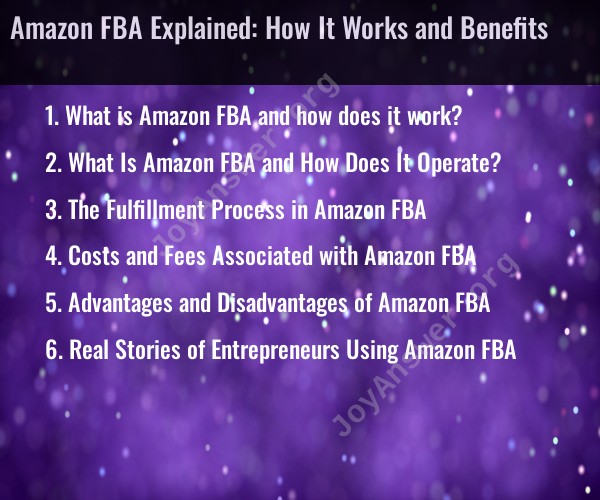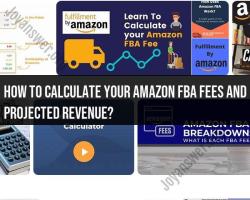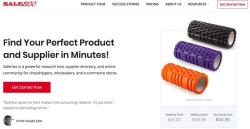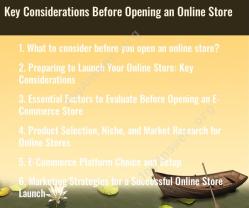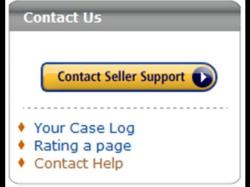What is Amazon FBA and how does it work?
Amazon FBA, which stands for Fulfillment by Amazon, is a service provided by Amazon that allows individuals and businesses to sell their products on the Amazon platform while outsourcing the storage, packaging, and shipping of those products to Amazon's fulfillment centers. Here's how Amazon FBA works and the benefits it offers:
How Amazon FBA Works:
Create an Amazon Seller Account: To get started with Amazon FBA, you'll need to create an Amazon Seller account. You can choose between an Individual or Professional account, depending on your selling volume and business needs.
Source and List Products: Once you have your seller account, you can source or manufacture products to sell on Amazon. You'll need to create product listings on the Amazon marketplace, providing product details, descriptions, and pricing.
Ship Products to Amazon: After creating your product listings, you'll prepare and ship your inventory to Amazon's fulfillment centers. Amazon provides guidelines for packaging and labeling your products. Once your items arrive at the fulfillment center, Amazon takes care of storing and managing your inventory.
Customer Orders: When customers place orders for your products on Amazon, the orders are processed by Amazon's system. Amazon picks, packs, and ships the products to the customers on your behalf.
Customer Service and Returns: Amazon handles customer service inquiries, including questions and returns. They also manage the fulfillment and shipping process, ensuring that customers receive their orders in a timely manner.
Storage and Inventory Management: Amazon FBA provides storage and inventory management services. You can check the status and quantity of your inventory in Amazon's fulfillment centers through your seller account.
Fulfillment Fees: Amazon charges fees for using the FBA service, which cover storage, order processing, and shipping. These fees depend on the size and weight of your products, as well as the duration they are stored in Amazon's warehouses.
Benefits of Amazon FBA:
Prime Eligibility: Products fulfilled by Amazon are often eligible for Amazon Prime, making them more attractive to Prime members and potentially increasing sales.
Increased Visibility: Products fulfilled by Amazon tend to have higher visibility in search results, as Amazon's algorithms prioritize them.
Customer Trust: Customers often trust and prefer products fulfilled by Amazon due to the reliable and efficient fulfillment process.
Shipping and Customer Service: Amazon FBA takes care of order fulfillment and customer service, saving you time and resources.
Global Reach: You can use Amazon FBA to reach a global customer base through international fulfillment centers.
Easy Scaling: As your business grows, Amazon FBA can easily handle the increased demand, allowing you to focus on sourcing and expanding your product catalog.
Access to Prime Day and Holiday Sales: Products fulfilled by Amazon have access to special promotions and events like Prime Day and holiday sales.
While Amazon FBA offers many advantages, it's important to consider the associated costs and fees, as they can impact your profitability. Additionally, competition on Amazon can be intense, so it's essential to have a well-thought-out business plan, competitive pricing, and effective marketing strategies to succeed as an Amazon FBA seller.
What Is Amazon FBA and How Does It Operate?
Amazon Fulfillment by Amazon (FBA) is a program that allows third-party sellers to store their products in Amazon's fulfillment centers, and Amazon handles the picking, packing, shipping, customer service, and returns for those products. This service allows sellers to focus on their core business, such as product development and marketing, while Amazon takes care of the logistics of getting products to customers.
The Fulfillment Process in Amazon FBA
The fulfillment process for Amazon FBA is as follows:
Seller sends products to Amazon's fulfillment centers: The seller sends their products to Amazon's fulfillment centers, which are located around the world.
Amazon stores and manages products: Amazon stores the products in their fulfillment centers and manages inventory levels.
Customer places an order: When a customer places an order for an FBA product, Amazon receives the order electronically.
Amazon picks and packs the order: Amazon picks the product from its inventory, packs it, and labels it for shipping.
Amazon ships the order to the customer: Amazon ships the order to the customer using its own shipping carriers.
Amazon handles customer service and returns: Amazon handles all customer service inquiries and returns for FBA products.
Costs and Fees Associated with Amazon FBA
There are several costs and fees associated with using Amazon FBA, including:
Fulfillment fees: These fees are based on the size and weight of the product, as well as the shipping zone.
Storage fees: These fees are charged for storing products in Amazon's fulfillment centers.
Inventory tracking fees: These fees are charged for tracking inventory levels and providing sellers with real-time inventory data.
Other fees: There may be additional fees for services such as gift wrapping and product preparation.
Advantages and Disadvantages of Amazon FBA
Advantages of Amazon FBA:
Saves time and money: FBA can save sellers a significant amount of time and money by taking care of the logistics of shipping and customer service.
Increases sales: FBA products are eligible for Prime shipping, which can lead to increased sales.
Improves customer service: Amazon's customer service is known to be excellent, which can benefit FBA sellers.
Disadvantages of Amazon FBA:
Costs: The fees associated with FBA can be significant, especially for high-volume sellers.
Loss of control: Sellers have less control over their products and shipping process when using FBA.
Inventory management challenges: Sellers need to carefully manage their inventory levels to avoid stockouts and storage fees.
Real Stories of Entrepreneurs Using Amazon FBA
There are many successful entrepreneurs who have used Amazon FBA to grow their businesses. Here are a few examples:
Jessica Alba: The Honest Company, founded by actress Jessica Alba, uses Amazon FBA to sell its line of eco-friendly baby and personal care products.
Mark Cuban: The entrepreneur and investor Mark Cuban has invested in several companies that use Amazon FBA, including Quirky and Red Envelope.
Rachel Zoe: The fashion designer Rachel Zoe uses Amazon FBA to sell her line of clothing and accessories.
These are just a few examples of the many entrepreneurs who have used Amazon FBA to achieve success. With careful planning and execution, Amazon FBA can be a powerful tool for growing an online business.
